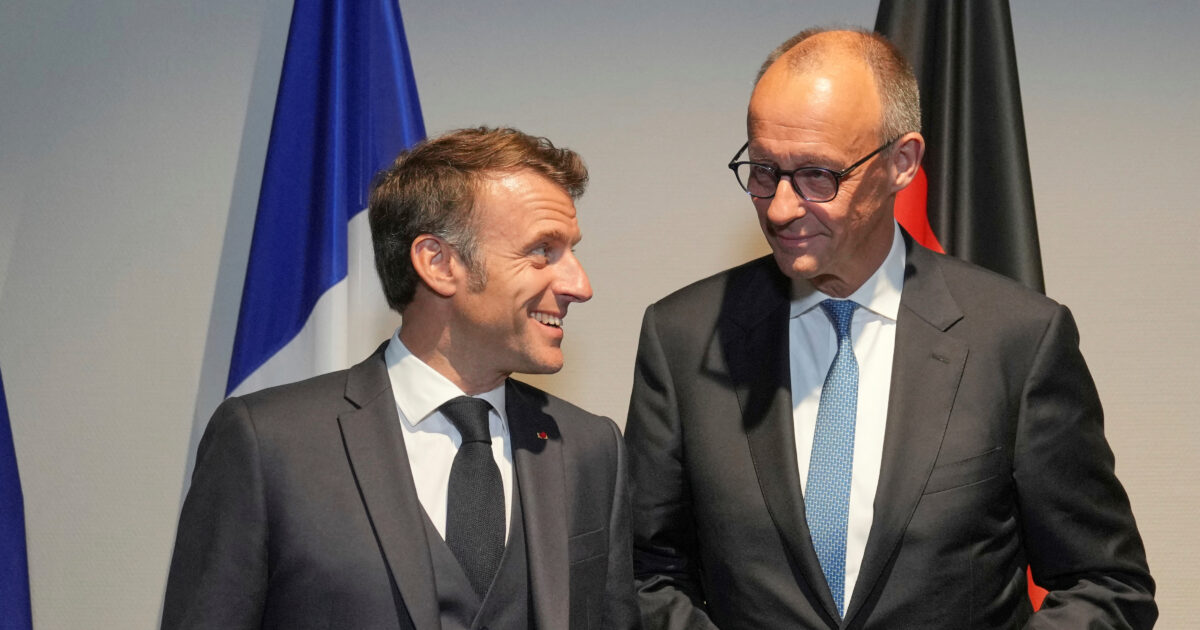Strengthening France and Germany cooperation in defensive industry as part of its re -equipment plan EU (Rearmeu) and the new increased commitments to NATO is expected to be the most important, perhaps, theme of today’s (23.7.25) Mertz -Macron meeting in Berlin.
The meeting of German Chancellor Friedrich Mertz with President Emmanuel Macron of France regarding the defense industry and the EU re -equipment is part of a barrage of Merz’s corresponding meetings with European leaders (eg, the British Starmer). Last time.
However, unlike Mertz’s meetings with the aforementioned leaders, the meeting with Macron is not expected to be so “easy”.
And this is not only because they have different approaches to the current re -equipment requirements (which are also intertwined with other disagreements on other issues, such as the new Community budget), but because there are timeless different structures in each country in terms of defense industry.
Starting with the current clashes of France and Germany, it is recalled that a giant new joint project has been agreed to the “Main Earth Battle System (MGCS)” which relates to battle tanks and is intended to replace Leopard 2 and the French counterpart.
The future air battle system (FCAS) is intended to create a stealth fighter aircraft that could guarantee air supremacy for decades.
These are important projects in the light of the Russian threat and the declining American promise of support in Europe, Handelsblatt notes, adding that these big projects are not really starting.
Ten years ago, Krauss-Maffei-Wegmann and the French company Nexter were specifically merged for the construction of the new hyper-tan.
However, so far there have been minimal partnerships outside a joint portfolio company in Amsterdam. At the same time, the German owners, led by Bode and Braunbehrens families, apparently seeking exit through the stock market.
The new tank … is in a hurry to be manufactured, as its release is scheduled for 2040.
Problems with the new FCAS fighter aircraft are even bigger. The French Dassault aircraft manufacturer and Airbus Defense’s German associate openly disagree with the distribution of responsibilities.
Dassault’s Managing Director, Eric Trappier, wants 80% of the development work. Dassault is the “wrong partner”, Airbus’s workers’ councils in Germany now openly claim.
How the French Defense Industry works
The disputes in the industry have deeper causes than the usual hostility between the management of the industry.
In essence, France has a different understanding of security and sovereignty from Germany.
France was never based on US support after World War II. In addition to the construction of its own nuclear deterrent, this also requires a dominant defense industry that covers the entire spectrum of military capabilities.
The central factor is the French state, which holds shares in almost all major defense companies, from Thales to Naval and Nexter, and has an influence on corporate policy.
The French president is always the spokesman for the Rafale fighter aircraft or the navy frigates on travel abroad.
How the German Defense Industry works
Germany’s image of itself is quite different from French. First – first, the German state is not a shareholder in the domestic defense industry.
After the end of the Cold War, the country saw itself as a power of peace and the defense industry as a “necessary evil”.
The German army, the Bundeswehr ordered very limited quantities and export opportunities were politically limited.
Those German companies that could produce defensive equipment, such as Siemens with KMW or Man with Renk, retired.
Companies and Family offices avoided defense companies. Whatever they had, they bought it from the protector power, the US.
The German companies were inactive and the German politicians dreamed of equal partnerships with the French industry, which were oriented to sovereignty and sovereignty. This could not have a good end.
The new challenges of the French and German Defense Industry
Therefore, Mertz and Macron must finally provide clarity to the policy of equipment.
Macron must commit to cooperation with his industry and limit excessive demands for sovereignty.
Mertz, on the other hand, must present Germany as a reliable partner that will not abandon the EU (Rearmeu 2030/ Safe) and NATO – agreed course and may not depend on the US on the defense equipment as soon as possible.
Only then will the new fighter aircraft fly and the new tanks will be completed, and Europe will be taken seriously as a dominant factor in a troubled world, Handelsblatt notes.
